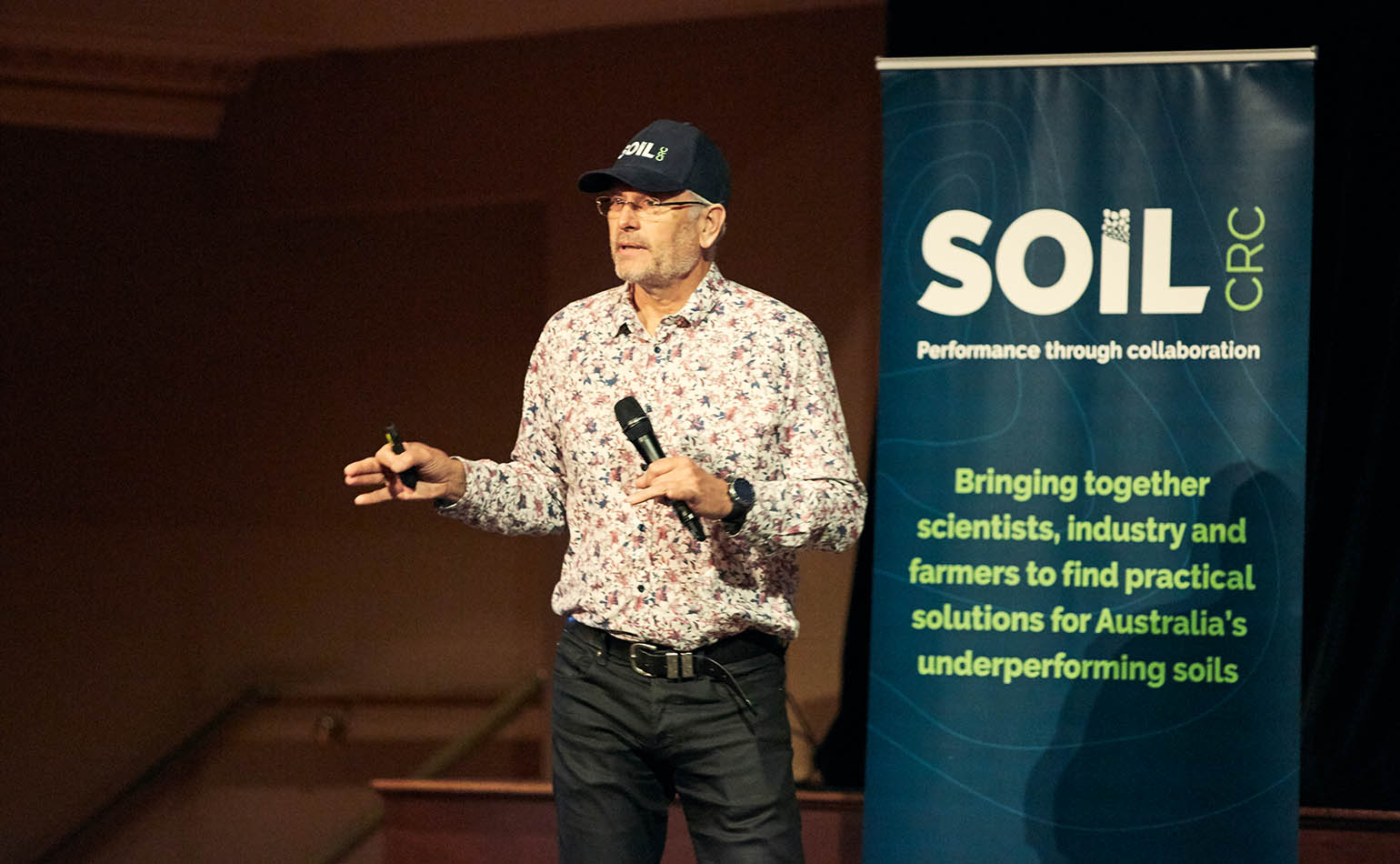Confessions of a soil enthusiast
You don’t have to spend long with Dr Richard Doyle, the leader of Program 2 at the Soil CRC, to know that he is a complete soil fanatic. His passion for soil science seeps into in every conversation. In fact it is hard to have a chat with him that doesn’t somehow lead back to soil, which is why he is the perfect choice for Program Leader at the Soil CRC.
“One of the key things that makes earth special and unique are its soils, they are complex and critical. Soil is the most important buffer for environment degradation, which is why I think it is so important to have good soil management. We only have one planet, we have to look after it,” Richard says.
He spends half his time as a Soil CRC Program Leader and half his time as a lecturer in Soil Science at the University of Tasmania. This role came about when a Professor from the University of Tasmania saw him teaching a whole farm planning course on soils, land capability and salinity, as part of his job at the Department of Primary Industry. He suggested Richard come and teach at the University. It was a natural fit.
Sharing his passion for soil with university students comes easily. He is enthusiastic about all aspects of soil science, from soil mapping to soil physics to food security. The interdisciplinary nature of the subject of soil science is very appealing to Richard. He believes that it is really important to understand the complex nature of soils.
“I think it is important that the complexity of soils are communicated, in general I would say soil science isn’t all that well explained. Scientists like David Attenborough and Brian Cox who love their subjects so much, are never happy with a poor explanation of their subject. That’s what I aim for in teaching soil science,” Richard says.
Richard grew up in New Zealand where “agriculture is everything.” He became interested in soils at an early age when his father took him to see the moon rocks in Wellington. “I thought that was pretty cool” he said.
He didn’t end up training to be an astronaut (although he is a pilot on the side), it was the draw of the amazing landscapes of New Zealand, the dynamic earth with its rivers, mountains and earthquakes that enthralled him.
“I have come to soil science from a curiosity of understanding where the all the landscapes came from,” he said.
Richard’s curiosity is piqued by how soils fit together. “It’s the common understanding that soil is weathered rock but this is not really the whole truth. They are mostly transported gravel, rock, sand and clay that have been conveyed through the landscape. Trying to figure out how they all got there is like a jigsaw puzzle.”
Richard completed his degree in Geology and Physical Geography that included soil science at Victoria University of Wellington, New Zealand. He went on to do Honours in river sediments, then a Masters in soil science in Greece. He then completed his PhD in understanding the history of soil erosion at the University of Tasmania.
Richard first heard about the Soil CRC during the bid and he really liked the range and diversity of activities that were outlined.
“I loved the four programs, looking at soil stewardship, looking at new ways to measure soil and make things cheaper and easier, thinking about other ways beyond traditional fertilisers and then studying it all and making it more efficient.”
Richard sees the regional support from both universities and diverse farmer groups as a real strength for the Soil CRC.
“I’m a strong believer in the genuine collaboration with farmer groups within the Soil CRC. The communication is two way. It will make it stronger and stronger.”
Richard is very enthusiastic about what the Soil CRC will achieve over the next eight years.
“I think the Soil CRC will achieve a lot, I think it will be amazing. It is great that it has a ten year time frame because it enables us to try things out and take a few risks.”
He is also conscious that we do need to understand the challenge of what we can deliver in the time frame and not overpromise.
Richard points to the multi-disciplinary approach and the PhD program as the real stand outs for the Soil CRC. The PhD program will see at least 40 graduating students by the completion of the Soil CRC in 2027.
“It’s exciting to think that the large number of postgraduate students from the Soil CRC will be bringing the next cohort of strong soil scientists to the market. The future of soil science is in good hands!”

